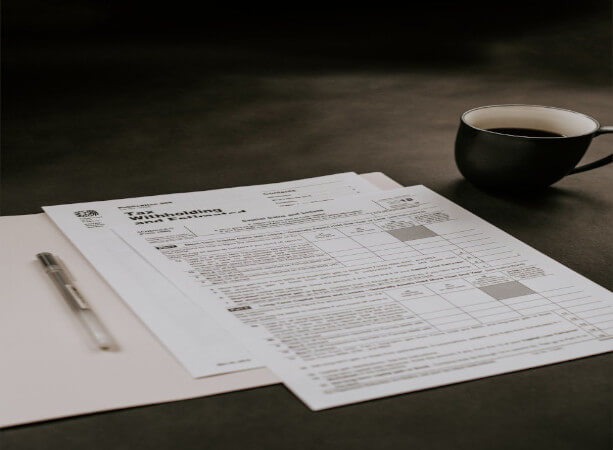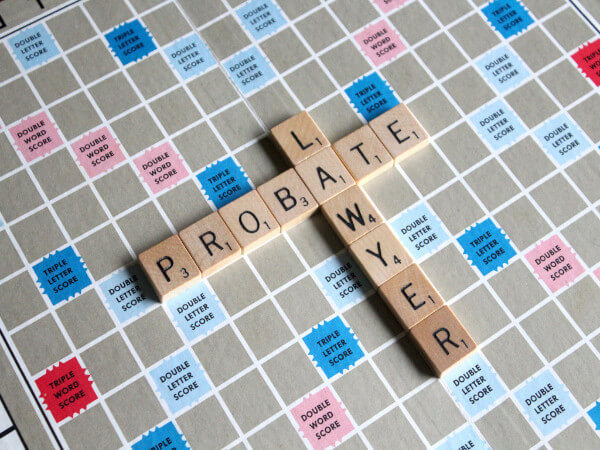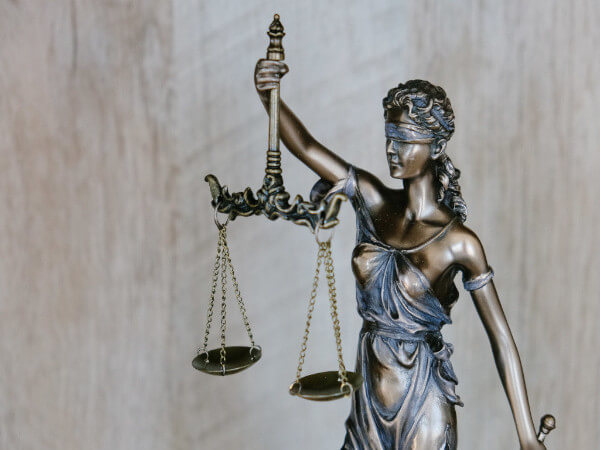Category: Legal Advising
What Are the Legal Consequences of an Eviction?
If you’ve been evicted, there’s a good chance that your housing problems aren’t over, even if you’ve turned your financial situation around. Evictions are a serious matter, which is why having an eviction on your record could bring long-lasting consequences. Let’s discuss where evictions records show up, where they don’t show up, and how you might avoid an eviction or clear an old record. Got a legal question? Get legal advice in minutes. Real Lawyers. Real Answers. Right Now. Get your answer How would an eviction affect me in the future? There are two main ways an eviction can affect you. First, being evicted doesn’t erase any money you owed to your landlord. If you owed back rent, the court that issued your eviction will generally give your landlord a judgment that allows them to collect the money you owed, plus court and other collection costs. Second, landlords often won’t rent to someone with an eviction. It shows that you had a serious problem with a past landlord through either not paying rent or committing serious rule violations. For these reasons, you want to avoid one whenever possible. One option is to use mediation to reach some other type of settlement. You may also want to research if your state has a current eviction moratorium or try to work out a payment plan with your landlord. Do evictions show up on background checks? There are both direct and indirect ways an eviction can show up on a background check. Housing court case: A landlord gets an official eviction by going to housing court (the exact name of the court varies by jurisdiction). Public court records include when a tenant has had an eviction filed against them as well as the outcome of those proceedings. Most landlord background checks check these
Read MoreUse a Credit Freeze to Stop Identity Thieves in Their Tracks
COVID-19 has led to a marked increase in online transactions, triggering a huge spike in cases of identity theft. There are many steps you can take to reduce the odds of becoming a victim, such as recognizing the telltale signs of identity theft. Another way you can protect yourself is by implementing a credit freeze, which can help curb the flow of personal data. Understanding what a credit freeze does and how to use it effectively will help you add an additional layer of protection to stop identity theft before it happens. Worried about identity theft and fraud? Prepare the documents needed to file reports and freeze accounts. We make it fast, affordable, and simple. Get started now Is freezing my credit a good idea? Credit card fraud can create years of problems for victims. Though nothing provides fool-proof protection against fraud, a credit freeze is a simple tool (with legally mandated compliance) that stops the credit bureaus from selling your data. When you do want a creditor to access your credit report, you enter a PIN to temporarily unfreeze it. The added layer of protection makes it much more difficult for scammers to open accounts in your name because they can’t access your credit report. A credit freeze protects against fraud as long as you keep that PIN secure. It’s also free and has no impact on your credit score. Since COVID-19 identity theft schemes are on the rise, now could be a good time to consider using this tool. How do I put a freeze on my credit? You can request to have your credit frozen through the three main credit bureaus—Experian, TransUnion, and Equifax—online. You can also print a Credit Freeze Request and mail it to each credit bureau individually. Along with the letter, you will need:
Read MoreState and Federal Eviction Moratorium Updates for Landlords
If you’re a landlord, then you’re well aware that many state governors enacted eviction moratoriums to protect vulnerable tenants during stay-at-home orders in response to the COVID-19 pandemic. Additionally, certain metropolitan areas (including Atlanta and Boston) issued moratoriums of their own, while some state Supreme Courts also intervened by issuing emergency orders halting eviction proceedings. In some instances, evictions were allowed at the discretion of lower courts. The federal government also got involved when the Director of the Centers for Disease Control (CDC) issued an executive order halting certain evictions based on nonpayment of rent. The CDC’s order was much more limited than most state and local moratoriums, requiring tenants to take certain actions to stop the eviction process from moving forward. These moratoriums are likely to put landlords in a financial and moral bind. While nonpayment of rent can threaten your livelihood, especially in the absence of additional federal relief for small businesses, no one really wants to throw someone out of their home while COVID-19 and its variants are still a threat and workers are still suffering from massive job losses and loss of income. While we are all hoping for a miracle recovery by year’s end, the health of the economy still remains tentative at best. It’s a tough time for landlords and tenants, as the novel coronavirus continues to upend life as we know it. Understanding which eviction moratoriums apply to your rental property, when they expire, their scope, and related details will help you make informed, legally defensible decisions. Lease Confidently with Rocket Lawyer Get all the legal help you need to manage your property. Anytime. Anywhere. Get started now Is there an eviction moratorium that is still active in my property’s state right now? Most eviction moratoriums that were enacted at the state and
Read MoreDisaster Relief: 7 Tips for Making a FEMA Claim
Update:President Biden has approved disaster declarations for both Louisiana and Mississippi in response to the damage caused by Hurricane Ida. President Biden also signed a major disaster declaration on August 24 for four counties in the state of California due to the massive wildfires burning in the northern part of the state. In the aftermath of disaster, it can be hard to know where to turn for help. Homeowners whose properties are damaged during a hurricane, tornado, wildfire, severe winter storm, or other natural disaster may have insurance that will cover their expenses. Others may not be so lucky. For homeowners and renters in need of financial assistance that is not covered by insurance, the Federal Emergency Management Agency, or FEMA, is the agency to turn to for essential government aid. For some, the process of making a FEMA claim can be overwhelming or tedious, but it pays to stick with it. We have compiled the following tips to help you make a FEMA claim and get the disaster relief that you need. Concerned about storm or wildfire damage? Use RocketEvidence to capture video before and after the fire or storm, and share your question with an attorney. Get started Tip #1 – Document the Damage When the storm passes, your first instinct may be to start cleaning up the debris from your yard and attempt to undo the damage that has been done. However, it’s incredibly important that you take time to document the damage before you start the process of cleaning, fixing and getting back to normal. One of the first things that you should do is take photographs of the property. Don’t forget the detail shots that may better show the extent of the damage. It’s also a good idea to shoot video of your property in
Read MoreFocus on Financial Planning: Last Will and Testament
No one wants to think about dying, especially when young and healthy, but tomorrow is never guaranteed. Leaving this world unprepared can result in confusion and expense for your surviving loved ones. That’s why it’s important to consider your Last Will and Testament as part of your broader financial plan, even though it won’t take effect until after you die. Your estate — which includes your assets and financial affairs — will, by definition, outlive you. So it makes sense to treat your estate with the same care and planning that goes into your career choices, investments, and retirement plan. No, you can’t take it with you, but wouldn’t you rather have a say in how your estate is handled after your death, as opposed to leaving it up to the courts? Let’s discuss the importance of drafting a Will, what’s involved, and how your Will fits into your broader financial plan. Got a legal question? Get legal advice in minutes. Real Lawyers. Real Answers. Right Now. Get your answer What exactly is a Will? A Last Will and Testament — often just called a Will — is a legally binding document where you leave instructions for how your money, property, and other assets should be handled after your death. It’s also an opportunity to pass on items of sentimental value or personal messages to loved ones. Your Will doesn’t take effect until you die. To write a valid Will, you must be mentally competent. This means, for example, that you may not sign a Will if you have been diagnosed with dementia. In most states, you will need at least two witnesses who are 18 or older to observe your signing of the Will and vouch for your mental competence. Although there are instances when it may make sense
Read MoreKeep Renters From Burning Down Your Property on the 4th of July
Independence Day celebrations are almost here, and with them comes the risk of accidents and fires. While most people take precautions, landlords have an additional worry when it comes to their tenants. Here are some property management techniques that can help prevent or reduce property damage and personal injuries caused by fireworks and fire on the 4th of July. Lease Confidently with Rocket Lawyer Get all the legal help you need to manage your property. Anytime. Anywhere. Get started now Can you stop renters from setting off fireworks on your property? There are two ways to potentially stop renters from shooting off 4th of July fireworks on your property. One is through your lease and the other involves local laws. Your lease may have a list of rules or it may refer to a separate list of rules, like zoning or homeowners association bylaws. For example, a lease at a multifamily home may refer to separate community rules for things like pool hours. Your lease or the rules themselves may give you the authority to modify these rules at any time. This is useful because a fireworks clause is not a common lease term. If your lease enables you to make rules, you can notify your tenants in advance of the holiday that fireworks are not allowed on the property. Many local laws and ordinances also prohibit fireworks. A reminder is enough to stop many tenants from using fireworks. If your tenants break these laws, especially if it disturbs other people or causes property damage, you may have the right to evict for illegal activity. You can use the Rocket Lawyer Eviction Process Worksheet to determine whether you can evict and what steps you can take. Keep in mind that local laws will vary on whether setting off fireworks is
Read MoreShould I Sign a Prenuptial Agreement?
Many people believe a Prenuptial Agreement, or prenup, is a bad idea because it implies they are planning on a divorce at the same time they’re planning a wedding. But the truth is, a Prenuptial Agreement protects both spouses financially in case of divorce, disability, or death. Here, we answer some common questions about Prenuptial Agreements. Want to make a Prenuptial Agreement? Prepare a financial agreement that covers assets, debts, and children. We make it affordable and simple. Get started now Should I sign a Prenuptial Agreement? Being financially responsible is important for everyone. A Prenuptial Agreement can help protect each party’s current assets and ensure both spouses remain responsible for the debt they brought into the relationship. If either partner has children from a prior relationship, a Prenuptial Agreement can help ensure their financial stability as well. Prenuptial Agreements protect both partners, and they are helpful in the event a marriage does end in divorce. And it’s far easier to negotiate a financial arrangement that works for both parties while you’re communicating well, rather than waiting until your relationship becomes contentious. What happens if I don’t sign a prenup? State law prevails when there is no Prenuptial Agreement. For couples who live in states that adhere to community property laws, this means that most assets or liabilities accumulated during the marriage would be divided equally between the parties. However, individuals are able to retain assets they brought into the marriage and kept separate. In states that don’t follow community property principles, distribution of assets normally follows a process called “equitable distribution.” In these states, multiple factors are taken into consideration to ensure property is distributed in a fair way between divorcing parties. Either way, it is helpful to have a Prenuptial Agreement ahead of time that allows you to
Read MoreRelaxation of Validation (Section 119 of the Finance Act, 2012) Rules, 2021
Centre notifies new Rules [Relaxation of Validation (Section 119 of the Finance Act, 2012) Rules, 2021; to settle the controversial retrospective tax case concerning Vodafone. INTRODUCTION Last year, Vodafone won an arbitration case against the Indian Government of amount worth Rs. 20,000 crores. There was this company Hutch. Vodafone in 2007 bought Hutch. There is a particular tax levied on the capital gain. Vodafone bought Hutch. Hutch got capital gain. Here Vodafone made payment to Hutch. Legally, Vodafone if is making payment to Hutch; Vodafone will have to hold its capital gain and pay rest to Hutch. Now here the capital gain tax; which was supposed to be paid to Government was Rs. 22,100 Crore; which was not put on hold. This matter went to the Permanent Court of Arbitration. It held that the taxation put here is wrongful; as there was breach of the guarantee of fair and equitable treatment to the Vodafone. Background In May 2007, Vodafone had bought a 67% stake in Hutch for 11 billion dollars. Here Hutch is gaining capital gain. Here instead of Hutch; Vodafone is supposed to pay the tax. Vodafone contended that, Income Tax Act has no such provisions; and we are not liable to make the payment. Vodafone went to Bombay High Court; however, Bombay High Court ruled in the favour of Income Tax Department. Vodafone challenged it in the Supreme Court. Supreme Court overruled it and held that Vodafone Group’s interpretation of IT Act, is correct. This ruling was passed in the year 2012. The then finance minister, Pranab Mukherjee, circumvented the Supreme Court’s ruling. As Government was unhappy with the decision, it decided to amend the Finance Act retrospectively. There was global backlash upon this decision. After much criticism, Government decided to proceed to amicably settle the dispute. It
Read MoreWhere Do Lawyers Work Today? The Ethics and Acceptance of Working Remotely
Remember when working remotely was taboo? Several years ago, I published a piece here on Attorney at Work titled “Solo Lawyers: Where Is Your Office?” Back then, lawyers working anywhere but a traditional bricks-and-mortar office with their firm name on the door typically glossed over their nontraditional working environment. Over time, the taboo surrounding less traditional work setups began to ease, and early in 2020, when COVID-19 hit the world, the stigma had all but disappeared. Today, the tables have really turned, and the lawyer in the bricks-and-mortar office is the less typical one. With that context, today we can boil down the question of where lawyers work to a much simpler answer: Lawyers work wherever we happen to be. Working Remotely Was Once Unthinkable in the Legal Profession At one time, the idea of a lawyer working remotely — even from home — was taboo. As an associate in Biglaw, the idea met with horror and was only semi-acceptable if you were sick. Then, the partners’ options were to allow you to actually use a sick day or let you work from home while recuperating. Working from home was better than not working at all, but it was definitely frowned on. In small law firms, where lifestyle mattered somewhat more, there was pushback against remote teams, too. Lawyers would argue that they could not effectively manage their team from afar, or ensure their team was working. Also, camaraderie would suffer if people were not face-to-face every day. Even for a solo lawyer, working remotely was frowned upon. We had ideas that clients expected us in an office (even if they didn’t come to see us). Somehow we were not real lawyers if we worked from home or anywhere besides a traditional brick-and-mortar office. Besides battling an entrenched workplace culture,
Read MoreOrder of remanding or extending the custody of undertrial a judicial function- Delhi HC
The Delhi High Court issued a string of directions for the purpose of safeguarding the rights extended to undertrial prisoners. Apart from Magistrate and Courts, the directions have also been issued to the District Legal Services Authority (DLSA) to ensure that the undertrials remain informed about their fundamental rights. The directions included not extending the custody of an undertrial prisoner mechanically with respect to Section 167(2) of Code of Criminal Procedure, 1973. Further, the authorities have been directed to ensure that the right of an undertrial to seek default bail is not defeated under any circumstances, including principles of law and legislative mandates. The single-judge bench specifically highlighted the provision under Section 167(2) of CrPC, 1973, and directed that neither the magistrate nor the court is empowered to mechanically extend the period of custody, for the maximum period of 15 days. The bench explained that custody should be extended keeping in mind the 60th, 90th and 120th day of completing the investigation and submitting the charge sheet. However, the same depends upon the nature of offence and applicability of a Special enactment. The bench added that the format of custody warrant shall include a column which would indicate the date on which the default bail had been granted to the undertrial prisoner. Moreover, the bench upheld the obligation of jail authorities to inform the undertrials regarding the date when their right to default bail accrues. The bench took note of this issue in a case wherein a plea had been filed to challenge the Sessions Court order which dismissed petitioner’s revision petition, which had been filed for challenging the dismissal of application of default bail under respective provisions. The post Order of remanding or extending the custody of undertrial a judicial function- Delhi HC appeared first on LexForti . Did
Read More














